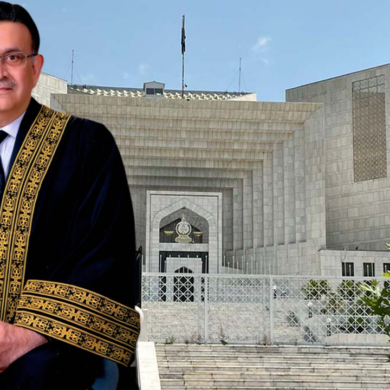In various regions of Pakistan, citizens have taken to the streets to voice their frustration and anger over drastically increased electricity bills.
The widespread discontent has prompted threats of demonstrations and even a civil disobedience movement if the excessive charges are not rectified.
Caretaker Prime Minister Anwaarul Haq Kakar has reacted to the protests by convening an emergency meeting at the Prime Minister’s House for tomorrow, Sunday.
The meeting aims to gather insights from the Ministry of Power and distribution companies, focusing on providing maximum relief to consumers grappling with exorbitant electricity bills.
The recent uproar emerged after the national average tariff was raised by approximately Rs5 per unit last month, pushing the base unit power tariff from Rs24.82 to Rs29.78. Furthermore, the government recently proposed another increase of Rs3.55 per unit on August 22.
Protests erupted across various cities, including Karachi, Gujranwala, Peshawar, and Toba Tek Singh, where citizens took to the streets, blocking roads and publicly burning their power bills. Some demonstrators vowed to challenge what they perceive as injustice through legal channels.
A diverse range of voices expressed their grievances. One individual conveyed his frustration, labeling the imposed taxes as “sheer cruelty.”
He lamented the potential lifelong burden of the electricity bill, suggesting that it might outlast his own life.
Others shared their challenges, with some forced to choose between paying rent or electricity bills, while others struggled to cover school fees for their children.
Former parliamentarian Nafisa Shah criticized the high electricity bills as “backbreaking” and “unacceptable.”
She questioned why the Pakistani people should suffer due to what she deemed as poor policy decisions by the ruling authorities.
Shah advocated for more cost-effective energy options such as solar, hydel, wind, and local coal.
The unrest escalated in Rawalpindi, where citizens gathered at Liaquat Bagh to protest against the steep electricity bills. Protesters voiced their grievances, citing bills that had doubled and demanding transparency and accountability from local electricity providers.
The frustration spread to Islamabad, where a resident expressed his exasperation, feeling utterly helpless in the face of increased electricity taxes. He described the impact on his bill, highlighting the significant rise in his financial burden.
The Islamabad Electric Supply Company (Iesco) also sought police protection due to concerns about adverse reactions from electricity consumers. The company expressed worries about its staff’s safety and the potential for damage to property and installations during protests.
In Peshawar, a barber shared his distress, revealing that his meager daily earnings were insufficient to cover his bill of Rs 20,455. The Peshawar Electric Supply Company (Pesco) instructed its staff to minimize public appearances, fearing potential disruptions to public order.
Lahore echoed the growing discontent, with a rickshaw driver expressing his frustration at the escalating costs. He highlighted the impact of inflation on daily life and livelihoods, emphasizing the challenges of meeting basic needs with soaring expenses.



